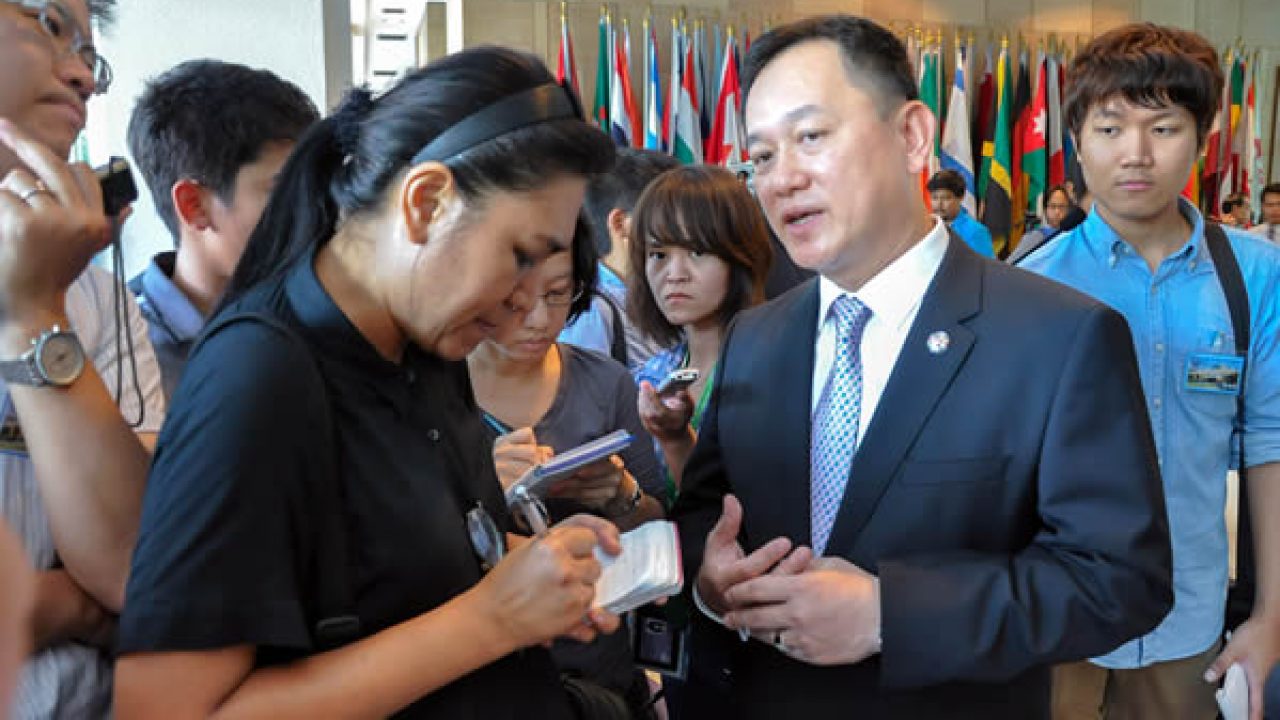The Joint Foreign Chambers of Commerce in Thailand issued on 29 August a press release calling for what it diplomatically calls a “structured rationalization, with significant changes, to the TM.30 (or 24 hour reporting) requirement,” because it is hurting the country.
Since the Immigration Bureau earlier this year started enforcing the TM30 found in an old regulation from 1979, it has collected fines from 800 Baht to 2000 Baht from thousands of foreigners for having failed within 24 hours to reports their whereabouts to the Immigration Bureau, even if they have just returned home after a weekend trip to another province.
The enforcement has undone Thailand’s endeavours to be an attractive destination for investment and ‘doing business’ as well as a tourism destination, the statement says.
“This need not be so,” says Mr Stanley Kang, Chairman of JFCCT.
“As can be seen in the press, there is much unhappiness with the current TM.30 requirement, both from foreigners and Thai citizens, which has caused some unfortunately negative views about Thailand both as an investment and ‘doing business’ location, and as a tourism destination,” he says.
“We understand that the Guillotine Unit (Simple and Smart License project managed under the office of His Excellency Dr Kobsak Pootrakool, Minister in the Prime Minister’s Office) has recommended the removal of TM. 30 in the interests of the Thai economy and ease of doing business. JFCCT supports this,” Mr. Stanley Kang says.
“If then there is any identified benefit, another, exiting tool, can be considered to remedy any specific situation”, Mr Kang explained.
“The TM.30 is not new but is being enforced with vigour, including to the point where a correctly completed TM.30 is a pre-condition to being able to use normal visa services,” the statement says.
“’Ease of doing business is a hallmark of any nation’s attractiveness for trade, investment and tourism. We commend the government for positive steps in ‘ease of doing business’. Currently TM.30 is undoing those good achievements. Our neighbours do not have this continuous tracking requirement”.
“While no-one would wish to remove tools which can effectively prevent harmful criminal behaviour, this particular form does not seem to be the best way to do this as it relies on self-disclosure. Also many cases (for example those with work permits & business visas) are already well covered. Finally there is overlap with another part of the Immigration Act about inter-provincial travel. Thus we have made specific recommendations about review and changes to reduce scope and make it user friendly”.
Beyond the proposed “structured rationalization”, the JFCCT urges a deeper regulatory reform in the medium to long term.
The Joint Foreign Chambers of Commerce in Thailand is the umbrella body for various Thai-foreign chambers or business associations operating in Thailand. There are 33 chambers and business associations representing more than 9,000 companies in this wide membership. JFCCT has served the foreign business community for over 40 years with continual dialogue with the Royal Thai Government on a wide range of issues in support of the Thai economy, and works closely with the Board of Trade and other organisations.
JFCCT has previously made detailed submissions as to why it recommend that the TM.30 be eliminated.
See also: http://www.jfcct.org/major-business-issues/work-permit-visa/


